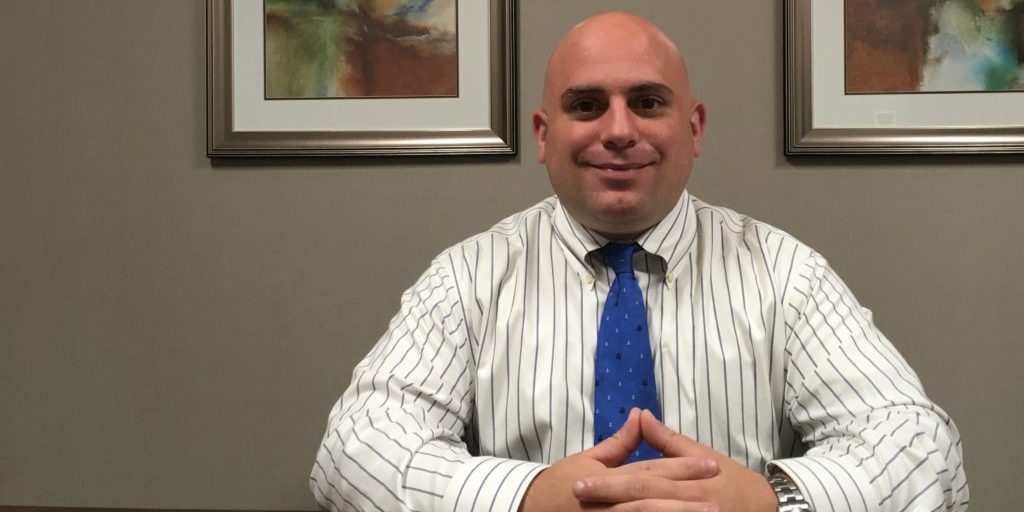Individuals enter therapy for a variety of reasons and the type and length of therapy can be different for each person. We recently had the chance to speak with Dr. John Persampiere, a local, licensed Psychologist, who specializes in working with individuals of all ages with different mental health and behavioral concerns.
Tell us about your company and what you do?
Annapolis Child and Family Therapy Center provides therapeutic services to children, adolescents, and adults with a range of mental and behavioral health concerns. Common problems treated include ADHD, anxiety, adjustment difficulties, depression, disruptive behavior issues, parent-child communication difficulties, habit disorders, marital problems, OCD, and Tourette’s syndrome. In addition to therapy, we will also soon be providing Psychiatry services for issues that require medication management.
How did you get started in your industry?
After receiving my Ph.D. in Clinical Psychology, I took a position at the Kennedy Krieger Institute and Johns Hopkins University School of Medicine as a Licensed Psychologist. I eventually became a full-time faculty member at Hopkins School of Medicine and the Associate Director of a large multi-site outpatient child and family therapy clinic at Kennedy Krieger. I decided to leave these positions to start my own practice so I could provide clinical services closer to my home.
What is something about your business that most people do not know?
Many people don’t know that therapy can be relatively short-term. Some folks have a conception of therapy as a long-term process of passive introspective conversations without a clear direction. Although some individuals require long-term treatment, therapy is often brief with concrete recommendations on how to handle specific individual or relationship problems. Therapy can be a very active process with clear action plans for addressing issues in between sessions. Further, seeking therapy does not mean you have a severe mental health disorder. We all struggle with anxiety, depression, stress, or relationship challenges. Psychotherapy can have a huge positive impact on an individual’s ability to resolve a range of life’s inevitable challenges.
Where do you see your business in 5 years?
I hope to see the business stay relatively small with a focus on providing high-quality customized treatment options for children, adults, and families. There is sometimes a temptation to grow into a very large clinic; however, my experience in large mental health systems has helped me understand the value of running a smaller operation that focuses on quality-control above all else. The addition of Psychiatric service adds an exciting dimension to our treatment options in addition to having two other Psychologists that provide therapy. I also look forward to continuing collaboration with Dr. Lee Anne Woomert of Bridgewater Psychology. Dr. Woomert owns a Psychological Assessment practice in the same building.
Tell me about yourself?
I grew up in Long Island, New York, and moved to Maryland for graduate school in my early twenties. I ended up staying in Maryland after graduate school after meeting my wife. I feel in love with the Annapolis area after some family friends recommended a specific school for my kids. Outside of work, I enjoy spending time with my wife and two young kids (ages 9 and 4).
Other than work, what are you passionate about?
Music and Labrador retrievers. We have one yellow lab and we are getting a black lab puppy in the next few weeks.
What types of activities or hobbies do you enjoy outside of work?
Spending as much time as possible with my kids.
What is your favorite place to eat in Annapolis? Favorite dish there?
Jalapeños and Lewne’s Steakhouse.
Why did you choose My Annapolis Office and how has working here helped your business?
Another Psychologist and friend of mine, Judy Clifford, Ph.D., recommended My Annapolis Office due to its convenience. The location has been helpful because of the geographic convenience of West street and ample parking for clients.
COVID-19 Recommendations:
The scope and impact of the challenges that COVID-19 has brought to our lives are difficult to describe. The uncertainty, stress, and lack of control has no doubt had an impact on our mental health. While there is no magic set of coping skills that provide instant relief for each of our unique problems, certain approaches to our daily lives can help mitigate the exacerbation of stress. It is helpful to provide structure to your schedule in which you have activities that promote a sense of mastery and skill development, exercise as much as reasonably possible, stay connected to friends and family, limit repeated exposure to news, and get outside frequently. Most importantly, it is important to be forgiving toward yourself and not place unrealistic expectations on yourself or your family to thrive in all aspects of life under these conditions.
We are all improvising and doing the best we can as parents, spouses, and co-workers. It is impossible to be perfect and struggling to be a parent or be effective at your job under these conditions is inevitable. Try not to interpret setbacks as an indication of personal failure. If the stress becomes overwhelming, do not hesitate to reach out to a mental health provider as most are providing teletherapy services. I’m personally happy to make recommendations based on your insurance situation. Finally, feel free to visit the Child Mind Institute COVID-19 Resource Center.











